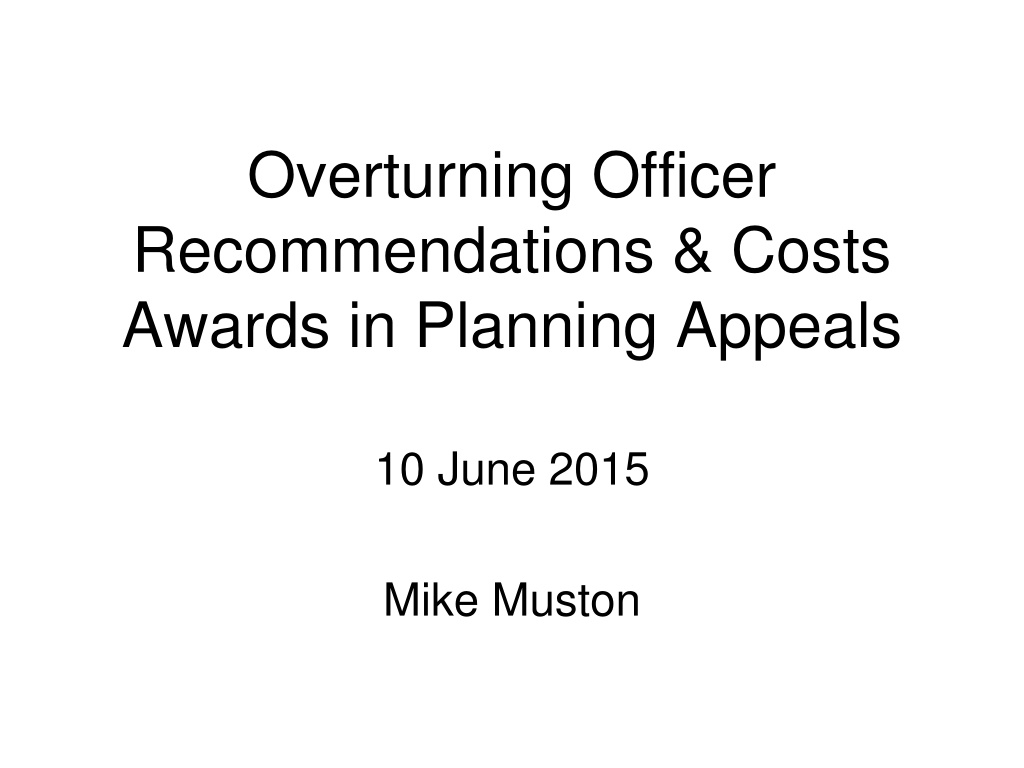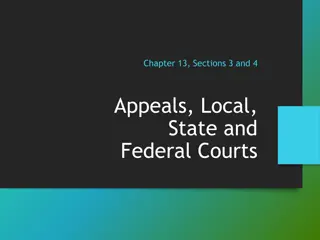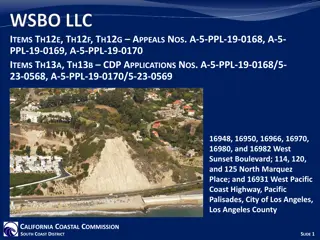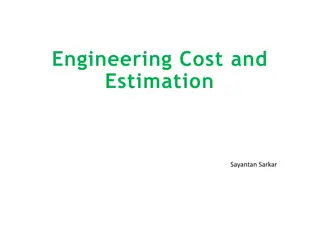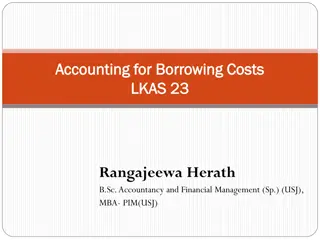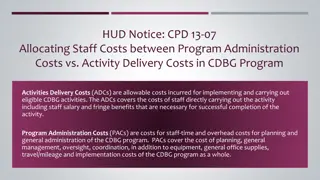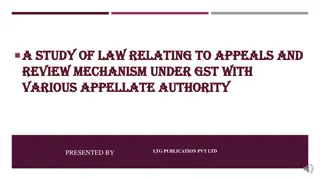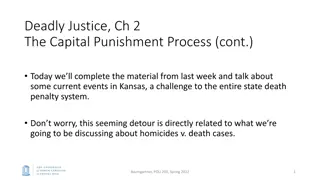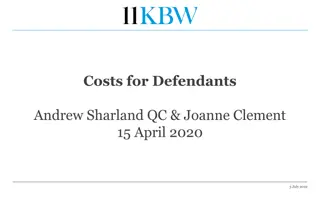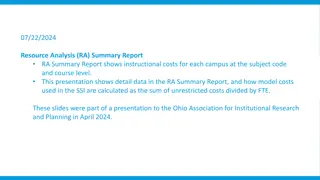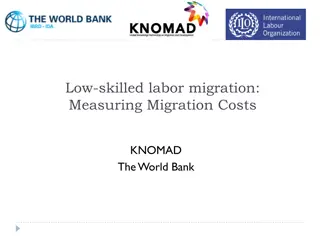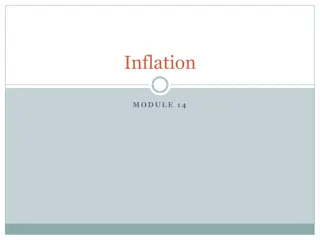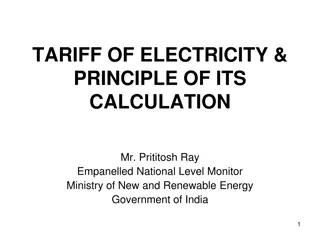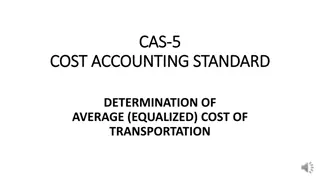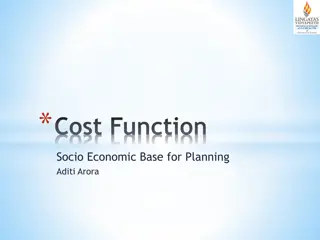Understanding Costs Awards and Officer Recommendations in Planning Appeals
Explore the significance of material considerations and development plans in planning appeals, the implications of overturning officer recommendations, the different types of appeals, and the criteria for costs awards. Learn about the introduction of costs awards, behaviors that may lead to unnecessary expenses, and the factors influencing the amount of costs awarded in planning appeals.
Download Presentation

Please find below an Image/Link to download the presentation.
The content on the website is provided AS IS for your information and personal use only. It may not be sold, licensed, or shared on other websites without obtaining consent from the author. Download presentation by click this link. If you encounter any issues during the download, it is possible that the publisher has removed the file from their server.
E N D
Presentation Transcript
Overturning Officer Recommendations & Costs Awards in Planning Appeals 10 June 2015 Mike Muston
Material Considerations and the Development Plan Section 38(6) of the 2004 Act If regard is to be had to the development plan for the purpose of any determination under the planning Acts the determination must be made in accordance with the plan unless material considerations indicate otherwise. Weight to be given to material considerations is a matter for the decision-maker
Overturning Officer Recommendations Should not be a problem where the balance of material considerations is a close one should be possible to defend at appeal (refusal) or resist a judicial review (approval) If an overturn from refusal to approval, no appeal but danger of judicial review if approval is not justified could result in decision being quashed If an overturn from approval to refusal, main danger comes from applications for awards of costs at appeal
Appeals Can be by Written representations Hearing Public inquiry Planning Inspectorate (PINS) now make decision over which route is followed, taking into account views of appellant and Council Costs awards can now be applied for and awarded in all types of appeal
Costs Awards An Introduction Introduced in 1993 Principally to stop Councils passing the buck on difficult decisions Both parties normally pay their own costs at an appeal To get costs award, need to show that the other party has behaved unreasonably Award can be for full or partial costs
What costs can be awarded? Need to show that the unreasonable behaviour has resulted in unnecessary expense Costs awarded are the costs of fighting the appeal (or the relevant part of an appeal if a partial award) If costs awarded, Inspector will say whether full award or which part of the proceedings Inspector does not set a sum the amount having to be paid depends upon many factors length & type of appeal, expert witnesses called, cost of barrister etc.
NPPG on Costs Paragraphs introduced into the Appeals section of the NPPG in March 2014 Sets out the aims of the costs award regime:- encourage all those involved in the appeal process to behave in a reasonable way and follow good practice, both in terms of timeliness and in the presentation of full and detailed evidence to support their case encourage local planning authorities to properly exercise their development management responsibilities, to rely only on reasons for refusal which stand up to scrutiny on the planning merits of the case, not to add to development costs through avoidable delay, discourage unnecessary appeals by encouraging all parties to consider a revised planning application which meets reasonable local objections.
Costs against LPAs Can be procedural awards (e.g. late introduction of an additional reason for refusal) Most costs awards against LPAs are substantive awards because of poor refusals NPPG sets out a series of paragraphs listing unreasonable behaviour by an LPA which is likely to result in an award of costs against them
Reasons for substantive awards against LPAs Preventing or delaying development which could clearly be permitted having regard to the development plan, national policy statements and material considerations Reasons for refusal that cannot be substantiated by evidence with reference to the development plan, national policy and material considerations Vague, generalised or inaccurate assertions about a proposal s impact, which are unsupported by any objective analysis Persisting in objections to a scheme or elements of a scheme which the Secretary of State or an Inspector has previously indicated to be acceptable
Reasons for awards against LPAs Refusing planning permission on a planning ground capable of being dealt with by conditions Refusing to approve reserved matters when the objections relate to issues that should already have been considered at the outline stage Imposing a condition that is not necessary, relevant to planning and to the development to be permitted, enforceable, precise and reasonable in all other respects, and thus does not comply with the guidance in the NPPF on planning conditions and obligations
Partial awards of costs Are usually awarded when parts of the refusal are reasonable but one or more reasons for refusal are not Can mean a Council winning an appeal but having partial award against them for one or more indefensible reason for refusal So beware of adding extra reason when refusing better to stick to defensible reasons only
Statements made at Committee Many applicants and appellants make copious notes of what is said at Committee Can sometimes be used against the Council at appeal and lead to costs, so beware Examples are appearing to give weight to an immaterial consideration or to refuse just to let objectors have their say at an appeal Think carefully about what can be defended later rather than what the public want to hear better a refusal on one defensible ground with nothing risky said than a refusal encompassing everything the residents say but leading to a large award of costs against the Council
